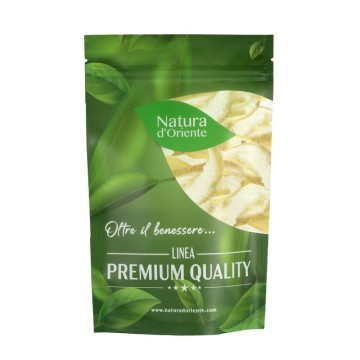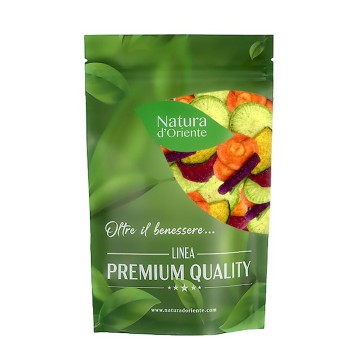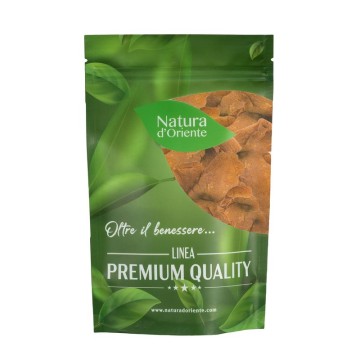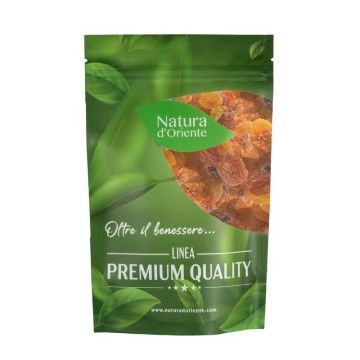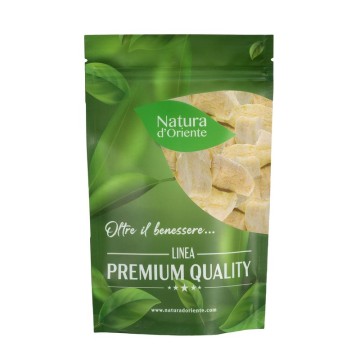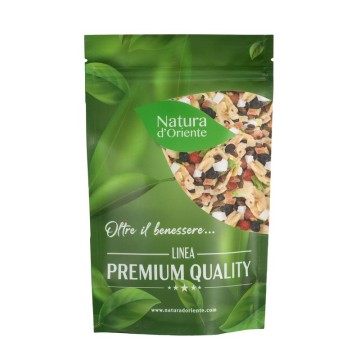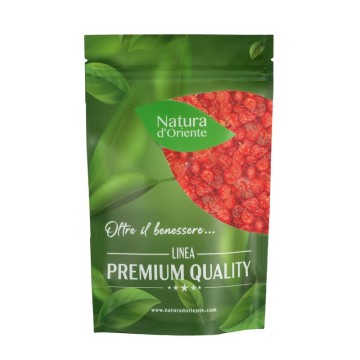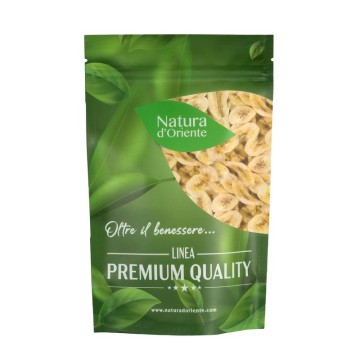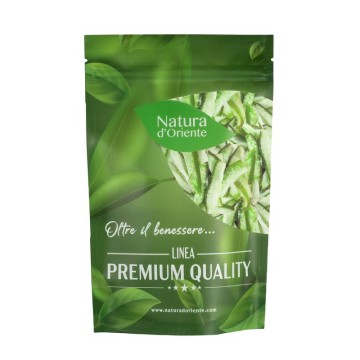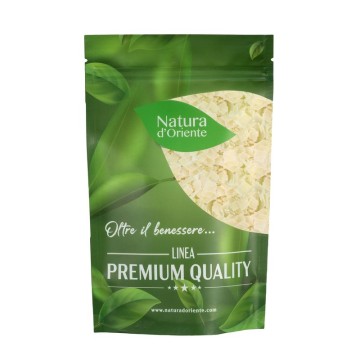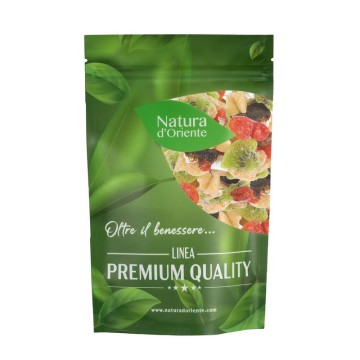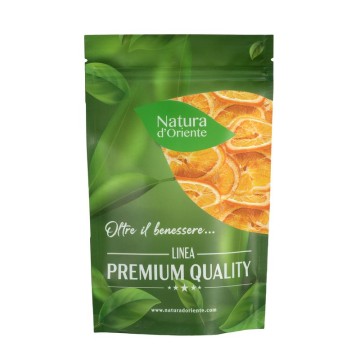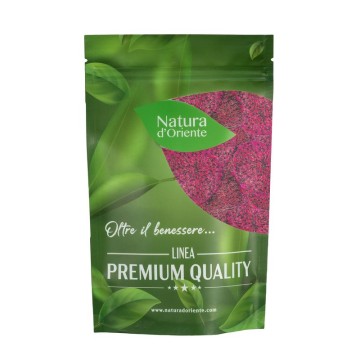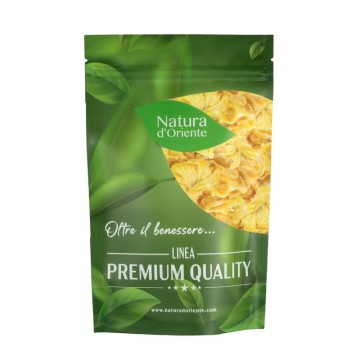The goodness of persimmons, also called persimmons, is best available in every season, thanks to this dehydrated version - usually, in fact, persimmons are autumn fruits. Sugar-free persimmons are delicious and sweet, as they already naturally contain glucose. They give the palate a delicate flavor, as well as sweet.
Dehydrated persimmon fruits: properties and benefits
Persimmon is a fruit rich in nutrients such as minerals, vitamins and antioxidants, flavonoids and polyphenols. It contains fiber, both soluble and insoluble, as the nutrients are concentrated by the drying process. Persimmon contains substances such as catechins and gallocatechin, a group of antioxidants also found in green tea, useful for improving digestion. Among its properties, in fact, persimmon promotes the regularity of intestinal transit, and has light laxative properties. Other antioxidants present in persimmons are carotenoids: beta-carotenes (which determine the orange color), vitamin A, lycopene and lutein. These components help protect the body from free radicals, which are among the causes of cellular aging. Another important active ingredient present in persimmons is vitamin C, and contains good doses of vitamin B. In terms of minerals, it makes potassium, phosphorus, copper and manganese available – they contribute to normal metabolism, to protect connective tissue cells and to the creation of energy. Being a sweet and substantial food, it is suitable as a snack to give energy to those who practice sports or feel tired.
Origins and history of cultivation
Persimmon is a very popular and important fruit in East Asian countries, being widely cultivated in China, South Korea and Japan. It derives from a plant native to China, very widespread as it is accessible in price and has a very inviting flavour. To date, persimmons are also cultivated outside of Asia, in Brazil and in Mediterranean countries such as Italy, Spain and Portugal. Its scientific name Diospyros derives from the Greek dióspuron, which means "food of Zeus", while the name by which we know it in Italy derives from the Japanese kaki. It is a seasonal fruit, available in its fresh form only in a short period from late autumn to early winter, and for this reason it is in great demand in the form of natural dehydrated persimmons. The fruit can be eaten both raw and cooked, fresh or dried - in several Asian countries the fruits are dried outdoors, in a process that takes about three weeks. In Korea, dried persimmon fruits are used to make a spicy punch called "SuJeongGwa". Persimmon has historically been used in traditional Chinese medicine for various therapeutic uses. From use for the diuretic effect to the treatment of sore throat, promoting the fluidity of bronchial secretions and the functionality of the upper respiratory tract.
Plant and flowers
Diospyros kaki is the botanical name of the persimmon plant, which belongs to the Ebenaceae family. The tree has four important species, of which the most representative is Diospyros kaki (Japanese persimmons), and other equally important species such as Diospyros virginiana, Diospyros oleifera and Diospyros lotus. The plant produces a spherical fruit with a color that varies from reddish to yellow, depending on the carotene content. The pulp is red-orange in color, viscous depending on the tannin content. It is mainly made up of mucilages and pectins, responsible for its appearance.
Nutritional values of Persimmon
Dried persimmons are useful for including various nutrients in the diet. They are a source of vitamin A, as well as B vitamins, carotenoids, tannins and other micronutrients. This version of natural dehydrated sugar-free persimmons does not contain excessive calories (about 301 per 100 grams), and a decent fiber content but little protein (about 2 g / 100 g). The fruit contains Vitamin A (about 135 µg / 100 g), and Vitamin B3 (about 0.180 mg / 100 g). Among the various minerals present, there are manganese (about 1.4 mg / 100 g), phosphorus (about 81 mg / 100 g), potassium (about 802 mg / 100 g), magnesium (about 31 mg / 100 g), and copper (0.44 mg / 100 g).
How to use dehydrated persimmon fruits in the kitchen
These fruits are easily digestible and tasty, they can be eaten dried, included in sweet or savory recipes. They can be softened and then used in appetizers, perhaps softened in broth and accompanied by sweet and sour sauces. See youDried version of persimmons is usually preferred as a hunger-busting snack, an energetic snack, thanks to the presence of natural sugars, vitamin A and mineral salts. They can be used in dessert and biscuit recipes, inserted as pieces of fruit in yogurt, in smoothies, in fruit salads; perfect in mixes of dried and dehydrated fruit and as a top on ice creams and semifreddos. Furthermore, natural dehydrated persimmons without sugar are suitable for the preparation of energy bars dedicated to athletes.
Persimmons: side effects and contraindications
There are no particular contraindications to the intake of dehydrated fruit such as persimmons, but a possible intolerance to the food must be kept in mind. The correct quantities of fruits should not be exceeded, otherwise you risk a laxative effect, digestive disorders and abdominal pain. A contraindication of dehydrated natural persimmons concerns overweight people and people suffering from diabetes, who should consume them in moderation. The presence of numerous sugars can increase blood sugar levels - even in the case of diabetes due to pregnancy or breastfeeding.

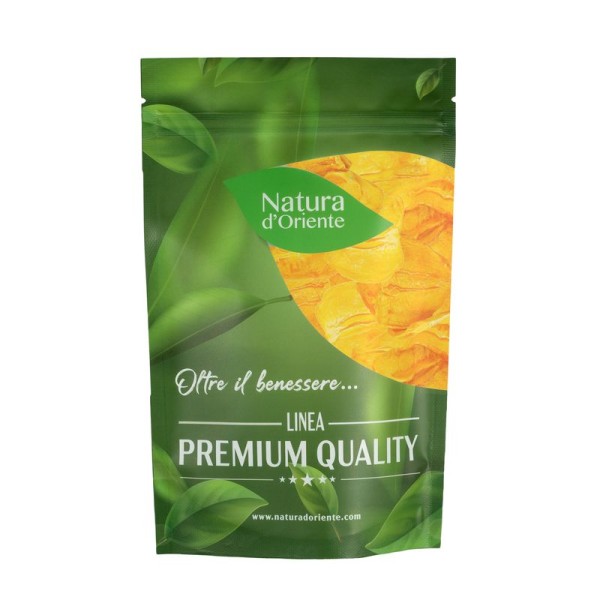











 No reward points for this product.
No reward points for this product.
.png)
